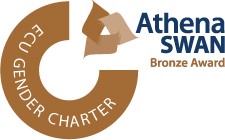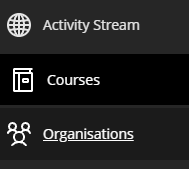Durham Law School

Welcome to Durham Law School
Durham Law School is a world leader in legal education and research. Our award-winning academic staff produce ground-breaking research with impact. Durham Law School is ranked:
- 3rd in The Complete University Guide 2026
- 4th in The Guardian best UK universities 2026
- 4th in The Times and Sunday Times Good University Guide 2026
- 57 in the QS World University Rankings by subject 2025
We were awarded the Athena Swan Bronze Award for commitment to the advancement of gender equality: representation, progression and success for all in 2022.
We are proud to achieve excellent results for student satisfaction and employability. Our graduates include many of the profession’s leading figures, among them current or former members of the UK Supreme Court, the Court of Appeal, and the High Court, as well as Members of Parliament, King’s Counsel (KC), partners in major international law firms, and General Counsel to listed companies.
Our globally ranked programmes attract exceptional students from around the world. We offer a rigorous, research-led curriculum. Alongside lectures, we are committed to small-group teaching through seminars and tutorials, an approach highly valued by employers.
Durham’s LLB recognised in Malaysia
We are very pleased to announce that the Legal Profession Qualifying Board Malaysia has recently recognised Durham’s LLB for the purpose of the Certificate in Legal Practice (CLP).
Look closer at our Durham Law School
Press play to watch the video, and read more about us below.
Research
We are at the forefront of doctrinal, theoretical and interdisciplinary debates where our contributions have made a significant impact.
Study with Us
Undergraduate Study
Durham Law School is a world leader in legal education and research. Our LLB degree is a flexible, full-time course delivered over three years – and fully approved as a Qualifying Law Degree for careers as a barrister or solicitor.
Postgraduate Study
Postgraduate study at Durham Law School opens doors. The school is a global leader in legal education and research, with award-winning staff, internationally recognised research centres, and distinguished alumni in government, the judiciary, leading law firms and chambers.
Employability and Career Opportunities
Read more about:
Scholarships
Thanks to generous gifts from our alumni, we can offer scholarships to our students.
Key Links for New Students
Student Hub
Our Student Hub contains key information regarding your degree programme and the Law School. This is our student intranet and can only be accessed with your Durham University email.
Learn Ultra
Learn Ultra is our Virtual Learning Environment (VLE). You can find information and interactive resources for specific modules here.
News
Spotlight on: Professor Emma Cave – shaping the future of health law
Welcome to our Spotlight On series, where we showcase the world-leading work of our academics. Professor Emma Cave, from our Law School is tackling some of the key challenges in health law.

Professor Clare McGlynn’s research underpins new laws tackling X/Grok AI abuse
Durham’s LLB recognised in Malaysia
Upcoming events
When have you FAILED and what did you LEARN?
DELI Annual Lecture: Advocate General Tamara Ćapeta
DELI Lunchtime Seminar: Thibault Schrepel
Northern IP Network
REF 2021 Result
Our Research Excellence Framework 2021 results
Get in touch
Enquiries about Durham Law School and our courses should be sent via the contact links below.
Durham Law School
Durham University
Palatine Centre
Stockton Road
Durham
DH1 3LE
Questions about studying here?
Check out our list of FAQs or submit an enquiry form.
Your Durham prospectus
Order your personalised prospectus and College guide here.
Welcome to New Students
Welcome to Durham Law School! We are really glad that you have chosen to study at Durham Law School and hope your time in Durham will be challenging, fulfilling, and prepare you well for success in your chosen career.






/prod01/prodbucket01/media/durham-university/departments-/law-school/78805.jpg)
/prod01/prodbucket01/media/durham-university/departments-/law-school/78848.jpg)




/prod01/prodbucket01/media/durham-university/departments-/law-school/news-and-events/Hub-1155X681.png)
/prod01/prodbucket01/media/durham-university/departments-/law-school/news-and-events/Ultra.png)



/prod01/prodbucket01/media/durham-university/departments-/law-school/news-and-events/events/Failure-Event-v.2.jpg)
/prod01/prodbucket01/media/durham-university/departments-/law-school/general-images/Law-School-Blue-sky.jpeg)
/prod01/prodbucket01/media/durham-university/departments-/law-school/news-and-events/Law-School-purple.png)

